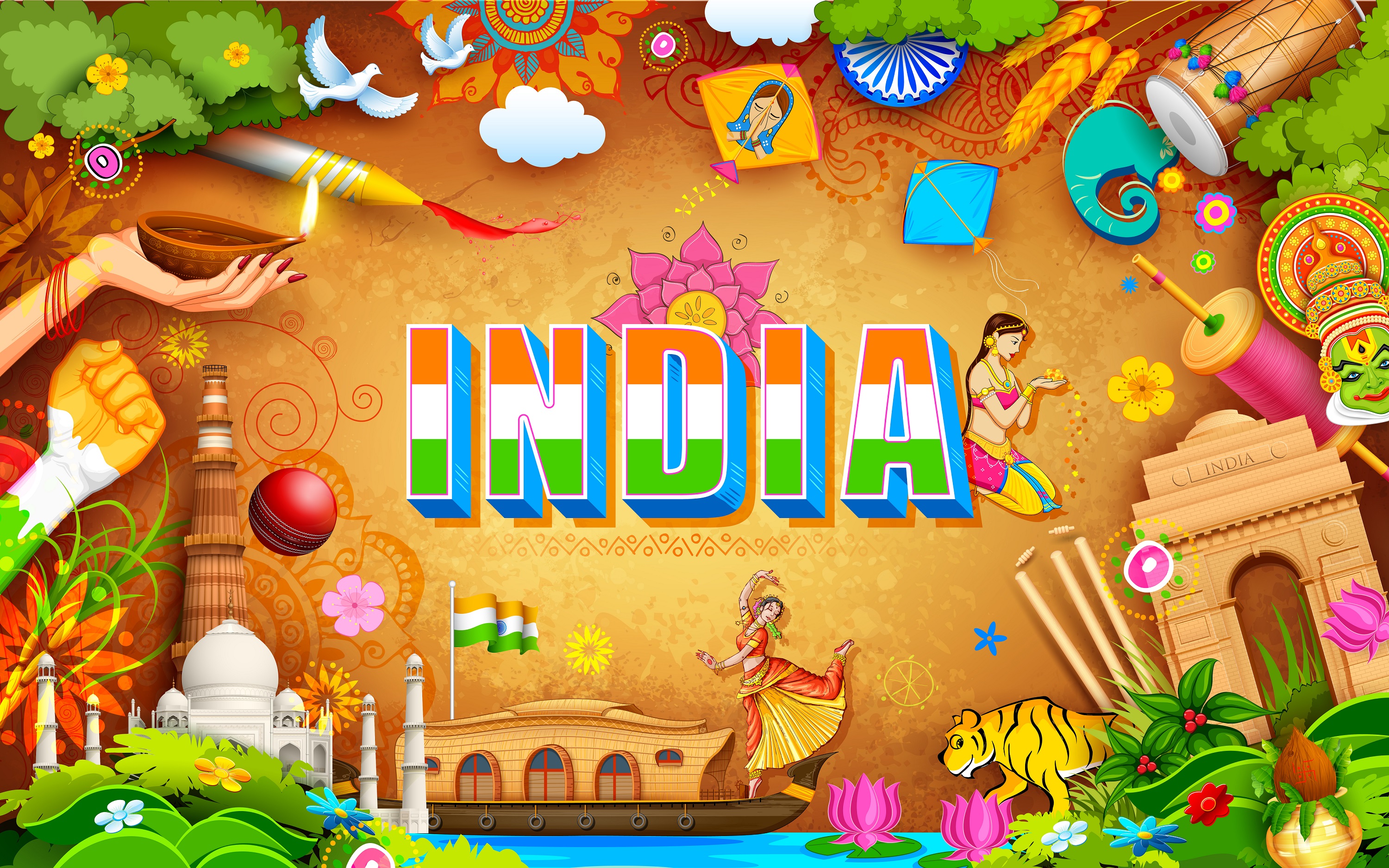
With about 800 dialects and 22 officially recognised languages, several religions including Hinduism, Islam, Christianity, Jainism, Buddhism, Sikhism, Zorastrianism and Judaism, various styles of art, architecture, literature, music and dance, and several lifestyles from the urban and rural to the tribal, India is a melting pot of cultural diversity.
Indian music spans various traditions, from folk songs and music which varies from region to region, tribal music, classical and semi-classical traditions and popular music. There are two recognised styles of classical music – the Hindustani (northern India) style and the Carnatic style of South India. Each also has its dedicated instruments – to name just a few, Hindustani music has the sitar, sarod, sur-bahaar, bansuri, shahnai and the violin while Carnatic musicians generally use the veena, venu, nagasvaram, gottuvadyam or the violin as the main melody instrument. Percussion and other accompanying instruments are equally varied. Vocal traditions in both classical styles are also different. Broadly speaking, Carnatic music is devotional in nature while the Hindustani style is secular. Apart from these traditions, there are various semi-classical styles (such as ghazals and qawwalis) and also a rich vein of popular music typified in songs from Indian films which are generally musicals.
Indian dance has an unbroken tradition of over 2000 years, with themes drawn from mythology, legends and classical literature. It also can be broadly divided into folk/tribal dances which have many regional variations, and the classical dances, which are based on ancient texts and have rigid rules of presentation. Some of the major classical dance traditions are Bharata Natyam, Kathak, Odissi, Manipuri, Kuchipudi, Mohiniattam and Kathakali.
Indian literature can date its origins to the oral tradition of the Vedas and the great epics of India, which are still an integral part of daily life. Poetry, drama, fiction, non-fiction and all other literary styles have a substantial corpus in each of India’s major languages and in quite a few dialects, while the oral tradition also continues through folk songs and dramas. Theatre in India also has ancient historical roots, though classical theatre is performed very rarely nowadays, having been overtaken by a vibrant tradition of folk theatre (including puppet and shadow theatre) and modern professional theatre, which draws not only dramas written in any Indian language but also on non-Indian theatre from Shakespeare to Chekov to Andrew Lloyd Webber, either in English or in translation.
Historically India and Hungary have enjoyed friendly relations since the establishment of diplomatic relations in 1948. But before that the cultural ties had been cemented with several Indologists and historians forging a path to India and laying the foundation for a deep-seated relations in culture, history, languages, art, literature and music. Names like Csoma De Koros, Aurel Sein, Elizabeth & Sass Brunner are household names to define a strong cultural connection between India & Hungary. Rabindranath Tagore and Amrita Shergil are two names to be reckoned with who made considerable contribution in cementing this relationship. Sanskrit as a subject was introduced in Eötvös Loránd University ( ELTE) in 1873. Indian Council for Cultural Relations in New Delhi began deputing visiting professors in Hungary from 1992. The ancient Indian culture including the art, music and spiritualism has enamoured the people of Hungary for a very long time. This pressed the need for a dedicated Cultural Centre at Budapest which was officially opened in Nov, 2010 and was renamed after the iconic Indo-Hungarian artist Amrita Sher-Gil in 2014. There have been several milestones in the shaping of a cultural bond between the two countries where the India Cultural Centre has played a significant role.
The ASCC Team:
Dr Mukesh K Srivastava
Director, Amrita Sher-Gil Cultural Centre
Eszter Berki
Programme Manager (program.budapest@mea.gov.in)

Mr Geza Kalman (cul1.budapest@mea.gov.in)
Cultural Assistant

















